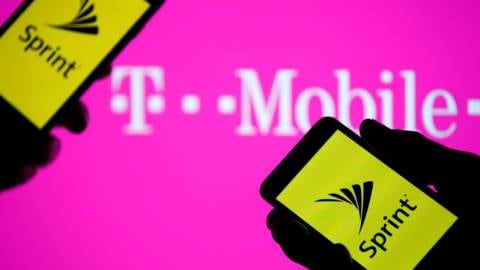
By Arriana McLymore and Sheila Dang
NEW YORK (Reuters) - U.S. wireless carriers T-Mobile US Inc
The states filed a lawsuit in June in a bid to block the merger, saying it would lead to higher prices for consumers. T-Mobile and Sprint contend that the merger would enable the combined company to compete more effectively with dominant carriers Verizon Communications Inc
U.S. District Court Judge Victor Marrero, who presided over a two-week trial last month in federal court in Manhattan, is scheduled to hear closing arguments in the case on Wednesday.
The U.S. Justice Department approved the deal in July after the carriers agreed to sell some assets to satellite provider Dish Network Corp
Executives from the companies, including outspoken T-Mobile Chief Executive John Legere, testified during the trial that Sprint's business was deteriorating and would not survive if it did not merge with T-Mobile.
The carriers argued that selling Sprint's prepaid business and some wireless spectrum to Dish Network Corp
The states, led by New York and California, maintained that Dish was ill-equipped to become a competitive fourth wireless carrier because it had not yet built a network using the wireless spectrum, or airwaves that carry data, it already owned.
The states also painted Dish as a hoarder of spectrum, a finite resource regulated by the government.
"Dish would not be a suitable replacement for Sprint and the merger would mean higher prices and reduced quality of service for millions of people across the country," New York Attorney General Letitia James said at a news conference outside federal court in Manhattan on Wednesday.
Last week, a federal judge who will assess the Justice Department's approval of the merger, said he would allow friend of court comment filings regarding the case.
(Reporting by Arriana McLymore and Sheila Dang; Editing by Noeleen Walder, Cynthia Osterman and Jonathan Oatis)